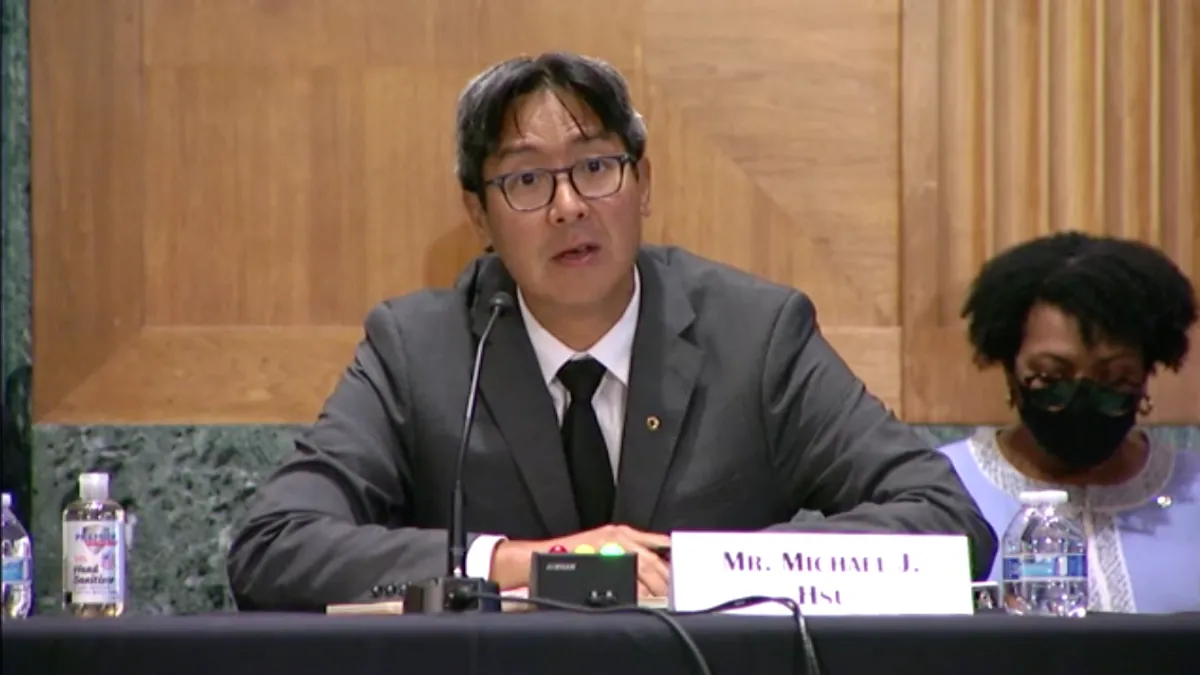Though banks have strengthened their liquidity position after the turmoil that struck the banking sector in March, they must be vigilant regarding the imminent risks related to technology and compliance, Michael Hsu, the Office of the Comptroller of the Currency’s acting chief, said Wednesday.
The OCC expects banks to “be on the balls of their feet” and re-examine their exposure, preserve capital, maintain strong risk management and guard against complacency as the banking space is reeling from recent bank failures, Hsu said.
Those failures triggered risk re-examinations by the banks and their supervisors, Hsu said, adding that banks must be prepared to clearly answer questions that arise from customers and stakeholders.
“Most of the banks we supervise are doing these things. Maintaining such vigilance can be challenging, though. That is why it is critical for us all to continue to guard against complacency,” Hsu said.
The semiannual risk perspective indicated portfolio depreciation might relax this year — because of customer flight driven partly by the failures of Silicon Valley Bank and Silvergate Bank. Rising long-term rates also spurred depreciation in investment portfolios while drawing attention to banks’ liquidity risk profiles, the report said.
However, Hsu emphasized that the federal banking system is sound and deposits are safe. National banks and the federal savings associations have braced their liquidity to cover potential deposit withdrawals, he said.
"Hope for the best, prepare for the worst," Hsu told reporters, according to Reuters. "We hope [the stability] continues, but we are prepared and preparing for volatility to return."
Hsu said the Federal Reserve and the Federal Deposit Insurance Corp.’s review of the bank failures revealed that supervisors needed more powers to promptly address the problems, American Banker reported.
"Supervisors need to act — it's not just good enough to see something, say something and then act," he said, according to the publication. "That risk management part and that discretion part are kind of the primary things that would have prevented Silicon Valley or Signature from happening."
The risk report also flagged increasing signs of stress in some commercial real estate segments, though overall credit markets and loan portfolios are seen as holding strong.
Operational risk continues to remain elevated due the persistent cyber threats. The digitization of banks, their products and services are opening opportunities and risks, the report indicated. The dynamic environment has challenged the compliance management system to keep up with the change.
“[B]anks need to be vigilant about addressing accumulating “technology debt” from legacy systems and deferred IT maintenance,” Hsu said Wednesday.
Banks’ crypto interest
Hsu said he thinks the banking system has withstood the recent volatility in the crypto space while banks’ interest in servicing crypto clients has subsided after the November failure of exchange FTX, according to American Banker.
Hsu said the interagency crypto guidance regulators issued in January has proved useful in maintaining bank safety and soundness.
"I think [the guidance has] withstood the test of time fairly well," Hsu told reporters. "You've had a fair amount of turmoil in the crypto space. Aside from Silvergate and some of the contagion from that, the cross-contagion to the banking system has been relatively contained.”
Regulators are confident banks will approach the crypto space more responsibly, Hsu said, though he noted he was less concerned about banks’ entry into digital assets today than he was a year ago.
"The [fear of missing out] on crypto has gone down this year, and I think that's really largely due to the events of last year," he said, according to American Banker. "Crypto winter was pretty tough for the crypto industry. Those who I put into the bucket of 'crypto curious' on the banking side lost some of that curiosity given some of those events … I'm just not hearing as much noise or demand for banks to get in on crypto.”













